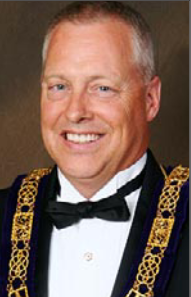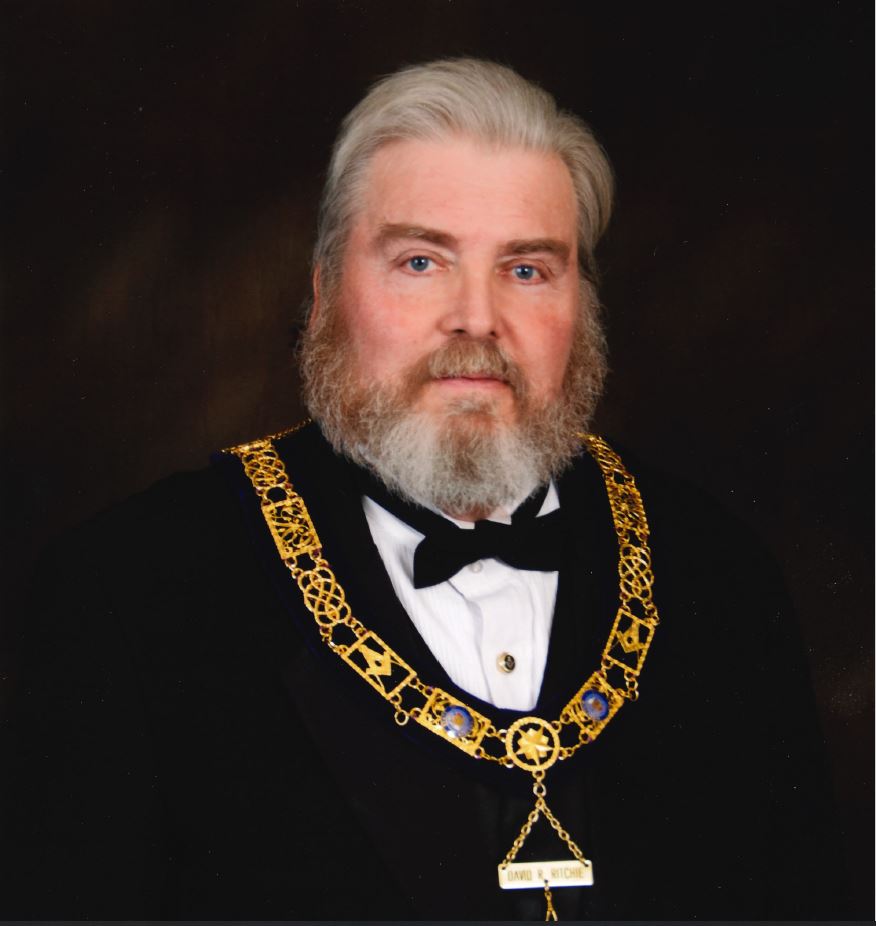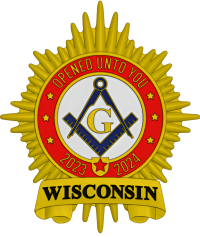
By Grand Orator Jerry A. Reick
What Class of Mason do I want to be?
In his 1875 essay, “Mason Who do not Read”. Albert G Mackey talks about three classes of Masons. He talks about the characteristics of each, what they perceive Masonry to be, and what they expect out of it. As you read this article, think about your reasons for joining, what you thought Masonry was, what you expect to get out of your affiliation and what class of Mason you want to be. “It is not uncommon for a Freemason to think that the obligation not only makes him a Mason, but a learned Mason at the same time. He too often imagines that the mystical ceremonies which induct him into the Order are all that is necessary to make him cognizant of its principles. There are some Christian sects who believe that the water of baptism at once washes away all sin, past and prospective. So, there are some Masons who
think that the mere act of initiation is at once followed by an influx of all Masonic knowledge. They need no further study or research. All that they require to know has already been received by a sort of intuitive process.
The great body of Masons may be divided into three classes. The first consists of those who made their application for initiation not from a desire for knowledge, but from some accidental motive, not always honorable. Such men have been led to seek reception either because it was likely, in their opinion, to facilitate their business operations, or to advance their political prospects, or in some other way to personally benefit them. Their object having been attained, or having failed to attain it, these men become indifferent and, in time, fall into the rank of the non-affiliates. Of such Masons there is no hope. They are dead trees having no promise of fruit. There is a second class consisting of men who are the moral and Masonic antipodes of the first. These make their application for admission, being prompted, as the ritual requires, “by a favorable opinion conceived of the Institution, and a desire of knowledge.” As soon as they are initiated, they see in the ceremonies through which they have passed, a philosophical meaning worthy of the trouble of inquiry. They devote themselves to this inquiry. They obtain Masonic books, they read Masonic periodicals and they converse with well-informed brethren. They make themselves acquainted with the history of the Association. They investigate its origin and its ultimate design. They explore the hidden sense of its symbols and they acquire the interpretation. Such Masons are always useful and honorable members of the Order, and very frequently they become its shining lights. Their lamp burns for the Enlightenment of others, and to them, the Institution is indebted for whatever of an elevated position it has attained. But between these two classes, just described, there is an intermediate one; not so bad as the first, but far below the second, which, unfortunately, comprises the body of the Fraternity.
This third class consists of Masons who joined the Society with unobjectionable motives, and with, perhaps the best intentions. But they have failed to carry these intentions into effect. They have made a grievous mistake. They have supposed that initiation was all that was requisite to make them Masons, and that any further study was entirely unnecessary. Hence, they never read a Masonic book. The Mason who reads, however little, be it only the pages of the monthly magazine to which he subscribes, will entertain higher views of the Institution and enjoy new delights in the possession of these views. The ultimate success of Masonry depends on the intelligence of her disciples.”
We all had our reasons for joining Freemasonry. Perhaps it is the draw of a major fraternal organization that has a rich history and international membership. Maybe it is that allure of an active social network, or it might be the attraction of an organization that is active in the community and charitable endeavors. All good things that Masonry is associated with. These are the visible manifestations by which the public knows Masonry. But there is a deeper, spiritual aspect of Masonry that is not necessarily spoken of and that many are unaware of. When a candidate enters the fold of Masonry he should feel that there is something in it better than its mere grips and signs and that he should endeavor with all his ability to attain some knowledge of that better thing. You might be asking yourself, “I’m interested in learning more about these deeper meanings, how do I start on the road to discovery and knowledge?” Freemasonry offers the promise of making a good man better, but how and when does that happen? The answer lies in a verse we are all acquainted with. Ask and you will receive, seek and you will find, knock and the door will be opened to you. It is the duty of every Lodge to provide an educational curriculum and environment conducive to learning the Mysteries of Freemasonry. It is our duty to seek out that knowledge and put forth the effort to educate ourselves. Is this type of educational exchange happening in your Lodge? Are we providing our membership the tools and an educational atmosphere where they can seek the guidance and counsel of learned members of the craft? I will endeavor to provide educational and informational resources. As far as reference/reading material goes, there’s a ton
of it out there. Your Lodge probably has an extensive library of Masonic literature, check that out as a no-cost option. Here are a couple of good books and a website to get you started: The Symbolism of Freemasonry, by Albert G Mackey (his most popular book and a great one to start with)
Reference:
The Meaning of Masonry, by Walter Leslie Wilmshurst Freemasonry and the Restoration of the Mysteries, Website:
http://www.grandlodgeaum.org/en/freemasonry-and-the-restorat
ion-of-the-mysteries/


